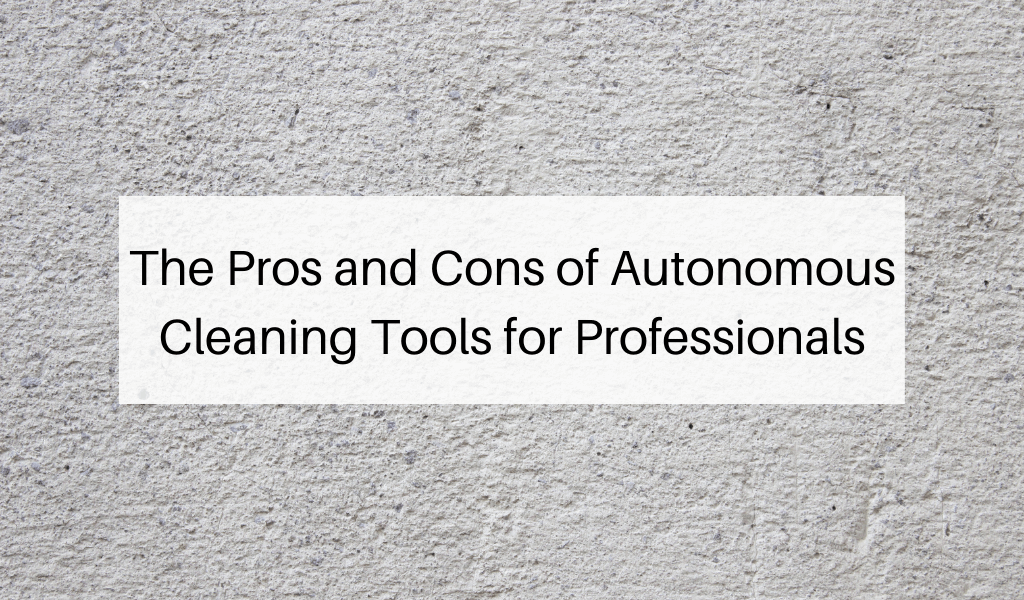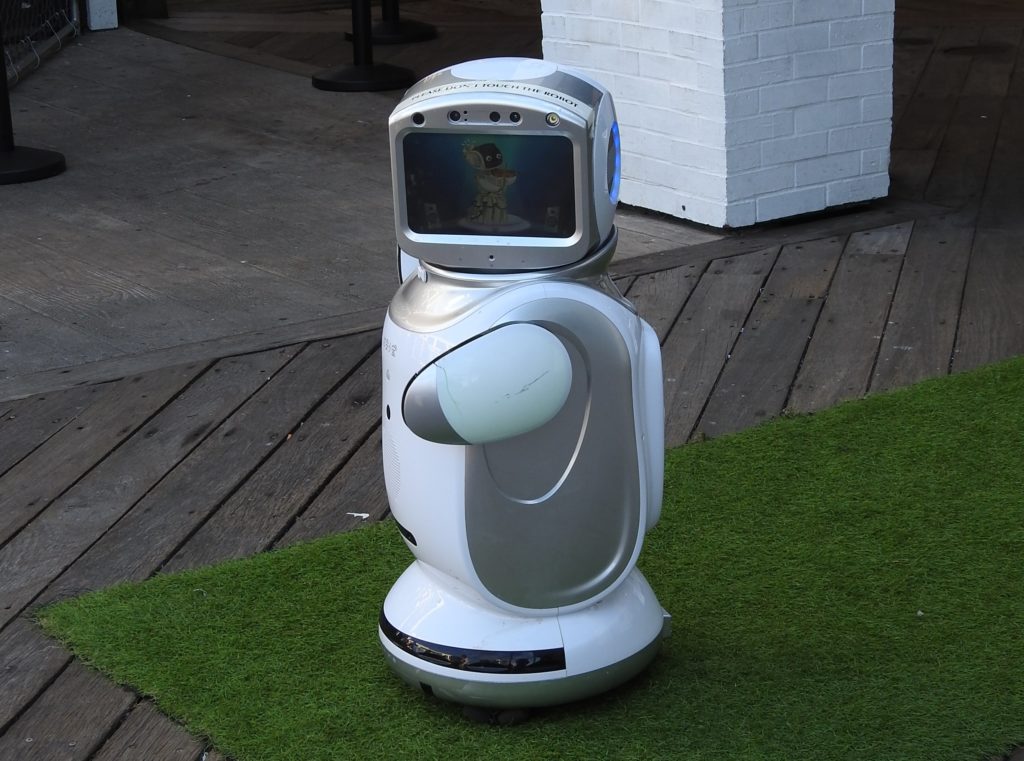Autonomous cleaning tools are here. Should you use them in your commercial cleaning operation? Here are some things to consider.
Autonomous cleaning sounds like something out of a futuristic sci-fi movie. Robots make your bed, bathrooms are self-cleaning, and there’s a cute little squeegee on legs that walks around cleaning fingerprints from windows and glass doors.
In theory, though, autonomous cleaning tools could make your business more efficient and more profitable. While your robot team is performing some of the more rote tasks, your human team can take on more of the detailed work, in essence, adding more productivity to your team.
Certainly, some of these cleaning robots are already in major circulation. The most well-known example is probably the Roomba from iRobot. The most basic of these runs around your home randomly and changes direction whenever it bumps into something. That’s great for a busy family, but obviously, that won’t work for your commercial cleaning company. There are, however, a number of autonomous cleaning tools designed for professionals. Here’s a look at some of them, as well as the pros and cons of incorporating them into your business.
If you are ready to bring your cleaning organization to the next level, take advantage of a free call with Janitorial Manager to see how our software can make you a more successful janitorial operation.
What kind of equipment is available?
So far, most autonomous cleaning tools are types of floor cleaners. There are many companies that offer various sizes and models with different features. But generally, these tools provide floor-sweeping, vacuuming, and scrubbing.
What should you look for if you’re interested in one of these machines? Safety certification (which is addressed below) is essential. You also want something flexible and easy to operate. Lastly, look for a company that offers excellent customer service and support, as you would with any major equipment purchase.
Is autonomous cleaning right for you? Here are the factors you should weigh.
One of the biggest concerns with using autonomous cleaning tools is safety. Of course, that’s always a consideration in the janitorial industry. There’s no shortage of obstacles, either. Whether it’s an office with a maze of cubicles or a bustling grocery store, there are plenty of opportunities for accidents.
At the same time, there is a minimum level of safety features these machines are required to have. The American National Standards Institute (ANSI) and the Canadian Standards Association offer safety certifications for floor care equipment based on such things as obstacle detection and avoidance, and stopping distance.
With that in mind, let’s get into some of the pros and cons of autonomous cleaning equipment.
The pros
Once it’s programmed, your equipment will do the same job every time. If it’s set to cover 6,000 square feet of retail floor space, that’s what it will cover. Not 5,900 or 5,800 or even 6,050. That means you have consistency, making it easier to track inventory and plan ahead.
Autonomous equipment can also be a valuable help for those times when your team is short-staffed. While you don’t want your equipment to replace people, it does give you some cushion for those inevitable times when you’re in a pinch.
You can also stand out in your location since autonomous cleaning equipment isn’t widespread yet. You’ll have a unique value proposition to share with clients and potential clients.
One of the biggest pros, however, is that these robotic cleaners can help keep your team safe. In a world in which viruses like Covid-19 can spread so quickly, these self-operated tools can take on some of the work in more contaminated areas, keeping your team safe.
The cons
There are some cons to adopting autonomous cleaning equipment, though they’re relatively minor. To begin, this could be a significant shift for your commercial cleaning business, and changes can introduce some challenges.
You may find that your employees are concerned you’ll try to cut staff or eliminate them altogether. Some business owners may feel uncomfortable adopting new technology. But the cleaning industry is changing all the time. A perfect example is in the way businesses have adapted to the challenges of a worldwide pandemic.
One other downside is that these tools can be expensive. However, there are workarounds. Some companies, such as Tennant, sell used and certified pre-owned equipment, and they also have rental options. Other manufacturers, such as SoftBank Robotics, makers of the Whiz autonomous vacuum sweeper, offer subscription packages to make the cost more affordable.
Autonomous cleaning tools can give your business a taste of the future. They impress your clients and offer a way to stand out amongst the competition. Most importantly, though, these tools are reliable and do an excellent job, which is ultimately why you invest in any commercial cleaning product.
Increase the efficiency of your team, reduce your costs, and improve results. With Janitorial Manager, all this and more isn’t just a dream, it’s your new reality. Contact us for a free consultation right now and see how it works!


